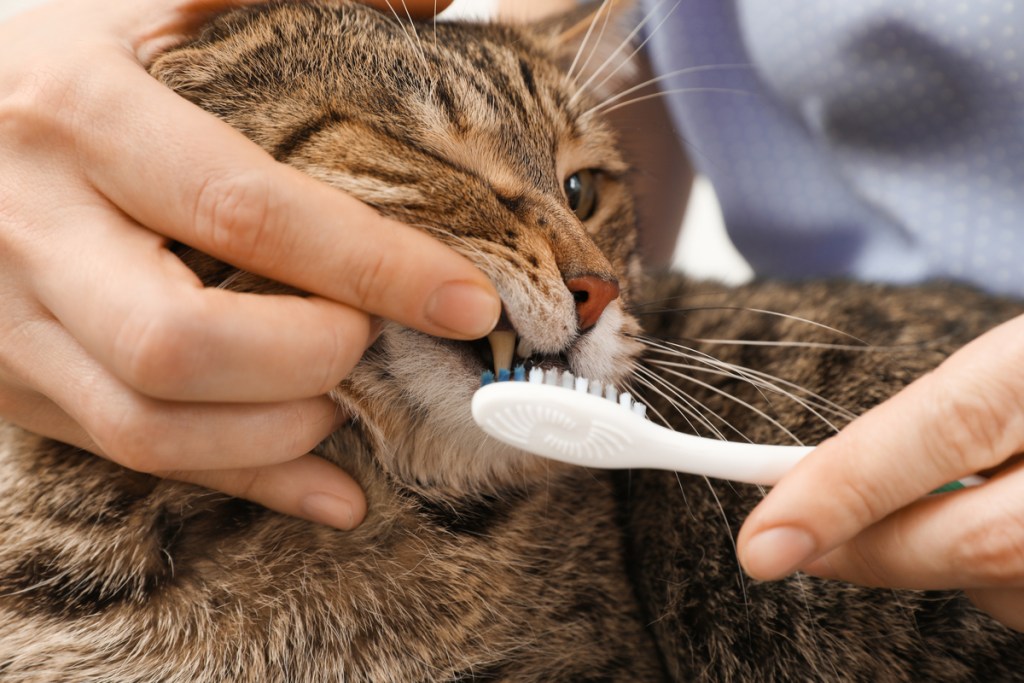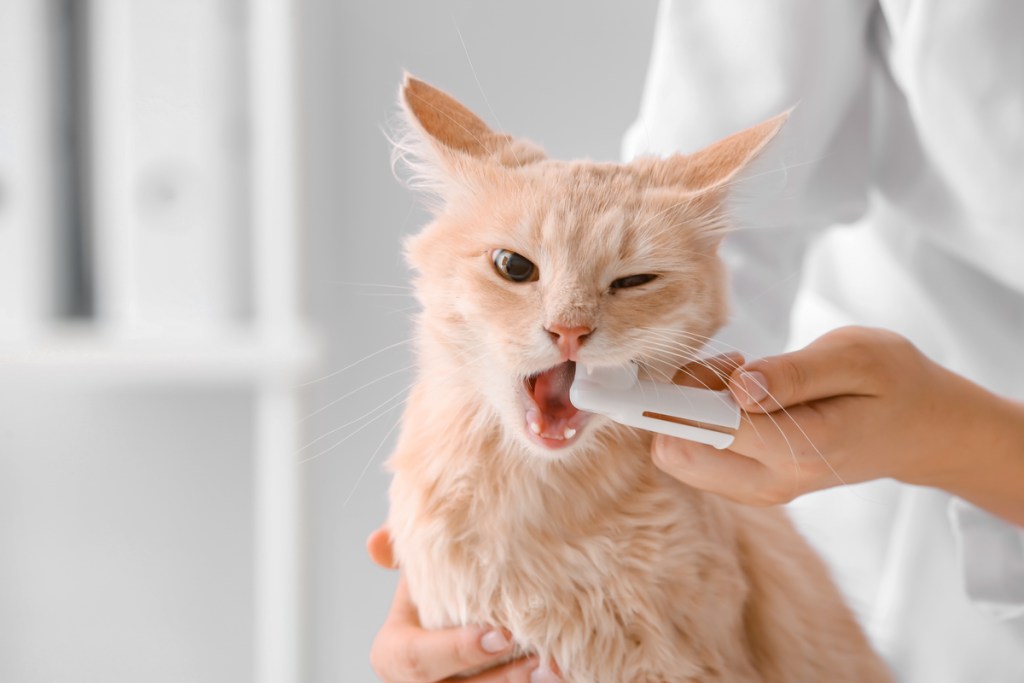Just like we have to brush our teeth multiple times a day to stay healthy, regular tooth brushing is an important element of your cat’s dental health. But, many cat owners don’t brush their cats’ teeth. That’s understandable, since cleaning your cat’s teeth isn’t always an easy process, but there are ways to gradually introduce tooth brushing so that your cat accepts it more willingly. If you’re looking for a simple way to improve your cat’s health, then it might be time to introduce tooth brushing so you can help to support his dental health and keep those pearly whites shiny and strong.

Why it’s important to clean your cat’s teeth
According to VCA Animal Hospitals, brushing your cat’s teeth can help to prevent periodontal disease. Periodontal disease, which occurs when the tissues around your cat’s teeth get infected, begins as gingivitis. Plaque causes gingivitis, and if it remains on your cat’s teeth too long, it becomes thick and turns into tartar. Gingivitis can eventually become periodontal disease, and that can cause tooth loss.
Brushing your cat’s teeth is a simple way to help prevent plaque and tartar buildup, keeping your cat’s teeth healthier.
How to clean cats’ teeth
Kimberly Crest Veterinary Hospital recommends that you brush your cat’s teeth daily, if possible, but it’s important to work up to this goal gradually.
When you first introduce tooth brushing to your cat, do so during a time when he’s quiet and relaxed. It’s best to introduce brushing when your cat is a kitten, but you can still accomplish this when your cat is older. Just be prepared for the process to take longer.
To start, place your cat in your lap and gently rub your finger over your cat’s teeth. DO this in a back-and -forth motion and stay toward the outside of your cat’s cheek, so he doesn’t bite you. Your goal is to get your cat comfortable with the motion and pressure on his teeth.
Next, you can introduce pet toothpaste. Never use human toothpaste, which can cause digestive upset.
Put a little toothpaste on your finger and let your cat lick it. Next, put a little on a pet toothbrush or finger brush and gently raise up your cat’s lip with one finger. Then, brush one or two of the teeth on the side of your cat’s teeth.
Be sure to praise your cat and keep these initial sessions short. You’ll only be able to brush a tooth or two at first. Gradually work your way up until you’re able to brush all of your cat’s teeth. Be sure to stay patient during the process, since what you’ll be doing is foreign to your cat. Keep the sessions positive so your cat doesn’t start to dread them.

Tips for cleaning your cat’s teeth
Kimberly Crest Veterinary Hospital explains that you really need to only focus on the outer surfaces of your cat’s teeth. Your cat’s tongue will remove plaque from the inner surfaces. As you increase the duration of your sessions, try to brush each side of your cat’s mouth for approximately 30 seconds.
Keep in mind that your cat’s mouth is full of bacteria, so it’s important to thoroughly wash your hands and the toothbrush after each session.
You can find pet toothbrushes for sale at most retailers. They’re smaller and angled to make for easier tooth brushing. You may find that a finger brush, which just fits over your finger, is easier to control as you’re getting started. Be sure to be gentle with whatever brush you choose.
Brushing your cat’s teeth doesn’t have to be difficult, but it does require some patients. Some cats will take to the process more easily than others. If you’re hesitant about getting started on your own, your vet can show you how to best hold your cat and the toothbrush during an appointment. With regular tooth brushing at home, you can help to support your cat’s dental health, but it’s also important for your vet to check your cat’s teeth during his regular checkups. Your vet may recommend periodic dental cleanings performed under sedation since they can be more thorough, but the tooth brushing you do at home can help to minimize how frequently your cat needs this professional dental care.


